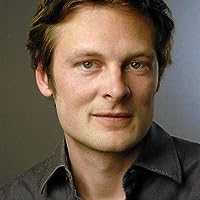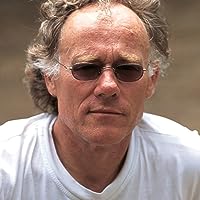Volcanism Quotes
Quotes tagged as "volcanism"
Showing 1-6 of 6

“The scientific world of the time was in the midst of a terrible ferment, with discoveries and realizations coming at an unseemly rate. To many in the ranks of the conservative and the devout, the new theories of geology and biology were delivering a series of hammer blows to mankind's self-regard. Geologists in particular seemed to have gone berserk, to have thrown off all sense of proper obeisance to their Maker... Mankind, it seemed, was now suddenly rather – dare one say it? – insignificant. He may not have been, as he had eternally supposed, specially created.”
― Krakatoa: The Day the World Exploded: August 27, 1883
― Krakatoa: The Day the World Exploded: August 27, 1883

“Everyone should be very grateful radioactivity exists at all. It can kill you, yes, but without it you wouldn't have been born in the first place. On Earth, deep under your feet, our planet happens to contain many atoms that do decay, all the time. Less so now than in the past, but still, Earth's mantle is radioactive. When atoms decay there, the particles they emit bump into their neighbours and generate heat, the very heat that contributes to keeping our planet warm. Without radioactivity, there would be no seismic or volcanic activity. The surface of the Earth would have been dead cold billions of yeras ago. Life as we know it would probably not exist at all.”
― The Universe in Your Hand: A Journey Through Space, Time, and Beyond
― The Universe in Your Hand: A Journey Through Space, Time, and Beyond

“Sophisticated human beings were on hand to see this volcano's convulsions, they were able to investigate the event, and they were able to attempt to understand the processes that had caused such dreadful violence...their observations, painstaking and precise as science demanded, collided head-on with a most discomfiting reality: that while in 1883 the world was becoming ever more scientifically advanced, it was in part because of these same advances that its people found themselves in a strangely febrile and delicately balanced condition...”
― Krakatoa: The Day the World Exploded: August 27, 1883
― Krakatoa: The Day the World Exploded: August 27, 1883

“We know that relatively minor sea-level rises could set off major ice-sheet breakups, and it has been suggested by Stephen Oppenheimer that the tremendous earthquakes caused by isostatic rebalancing at the end of the Ice Age could have stirred up 'mountain-topping superwaves' in the northern regions of the Atlantic and Pacific Oceans. Other than Oppenheimer's own investigations, however, my impression is that while many brilliant individual scientists have studied individual post-glacial phenomena in great depth, very little has yet been done to investigate all these phenomena together as part of a complex system or to consider the effects on the earth and its human population of multiple, interacting cataclysms -- floods, lands subsiding into the sea, earthquakes, volcanic eruptions -- all occurring at the same time.”
― Underworld: The Mysterious Origins of Civilization
― Underworld: The Mysterious Origins of Civilization
“Heat escapes from small planets more easily than from large planets, because small planets have a greater ratio of surface area (through which heat escapes) to volume (which stores heat and generates it by radioactive decay). A small planet would require a much greater amount of radioactive heat generation, per kilogram of rock, to maintain vigorous lava-producing volcanism. This is basically for the same reason that a mouse needs to consume many more calories per gram of body weight than a human. A typical mouse, weighing 40 grams, consumes 10 kilocalories (sometimes called simply ‘calories’ in everyday usage) per day. Scaled up to the mass of a human, that would amount to 25,000 kilocalories a day—equivalent to 7kg of dry spaghetti.”
― Planetary Systems: A Very Short Introduction
― Planetary Systems: A Very Short Introduction
All Quotes
|
My Quotes
|
Add A Quote
Browse By Tag
- Love Quotes 97.5k
- Life Quotes 76k
- Inspirational Quotes 73k
- Humor Quotes 44k
- Philosophy Quotes 29.5k
- Inspirational Quotes Quotes 27k
- God Quotes 26k
- Truth Quotes 23.5k
- Wisdom Quotes 23.5k
- Romance Quotes 23k
- Poetry Quotes 22k
- Death Quotes 20k
- Happiness Quotes 18.5k
- Life Lessons Quotes 18.5k
- Hope Quotes 18k
- Faith Quotes 18k
- Quotes Quotes 16.5k
- Inspiration Quotes 16.5k
- Spirituality Quotes 15k
- Religion Quotes 15k
- Motivational Quotes 15k
- Writing Quotes 15k
- Relationships Quotes 14.5k
- Life Quotes Quotes 14k
- Love Quotes Quotes 14k
- Success Quotes 13.5k
- Time Quotes 12.5k
- Motivation Quotes 12k
- Science Quotes 11.5k
- Motivational Quotes Quotes 11.5k


